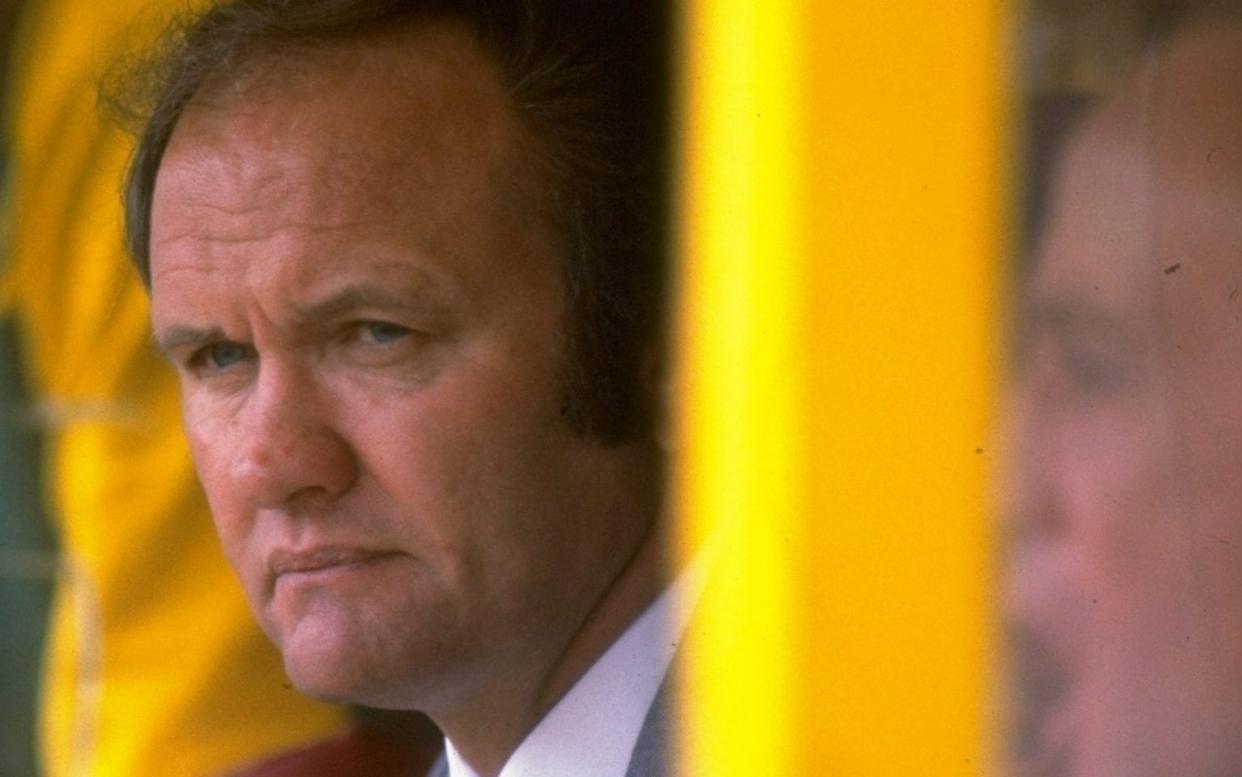Remembering Manchester United's 1984 winter tour to a Libyan dictatorship: 'Gaddafi had it all under control, didn't he?'

When Manchester United recently cancelled their plans for a warm-weather training camp in Qatar - citing simmering political tension in the Middle East after the American assassination of Iran's top military general - the irony was not lost on the class of 1984.
Back then, the club had thought nothing of packing the players off on a winter trip to Libya, a country under the brutal dictatorship of Colonel Gaddafi. The opportunity came about because an FA Cup defeat at Bournemouth created gaps in United's schedule.
“We ended up going to Libya for a friendly while the later rounds were being played," recalls former United defender Arthur Albiston. “You don’t want to be playing on a trip like that; you want to be playing in the Cup.”
With Ron Atkinson as manager, however, while the rest of the country was enjoying the fourth round of the Cup, United played friendlies in Algeria, then travelled to Libya during the next FA Cup break.
At the time Libya faced global hostility over Gaddafi’s regime. Protests against him had been held at the Libyan Embassy in London and relations with the UK were soon to deteriorate further. Suffice it to say that Libya in 1984 was not high on the list of winter sun destinations - but nobody seemed to have told Atkinson.

“I didn’t think it was dangerous at all," said Atkinson, who had previously taken his West Brom team to play pre-season matches in Aleppo, Syria. "We were given assurances. Gaddafi had it all under control, didn’t he?
“There was no danger at all. There was a spell when teams were going out and playing in Saudi Arabia, that was a stopping-off point. A few years earlier we played in Syria with West Brom. They wanted to promote the game out there and we got the invitations. If we could fit them in we would.”
United’s two trips to Africa only came about due to the Dean Court defeat, which is still regarded as one of the biggest Cup upsets in history.
United Review, the club’s matchday programme, reported on trips during which Bryan Robson and his team-mates played a series of friendlies.
“Algeria and Libya have been the destinations for trips designed not only to ‘spread the gospel’ but also as a means of recouping some of the income that has been lost by the early exits from the domestic competitions,” read the report.
In Algeria, United played against a team that included Rabah Madjer, who went onto win the 1987 European Cup with Porto and score in the final against Bayern Munich.
The following month they headed to Tripoli on a 55-hour round-trip where Atkinson fielded strong team and defeated a Libya XI, with goals coming from Frank Stapleton and Mark Hughes.
“I can’t recall much about the match but I remember getting hit by one of those rubber-band guns. I felt something hit me as we went onto the pitch,” Atkinson said.
“At that time players very often preferred to play than to train. If there was a gap you could get a game played. They would give you guarantees and everything. It was a break in routine. A change.”

Rather than safety, one of the problems United encountered was having a post-match drink in an alcohol-free country.
“The thing I remember most about Libya was the hotel that we stayed in,” Atkinson recalls. “It was in Tripoli. It was managed by a Scottish guy, lovely guy. Drink was out of the question but our physio had a bottle of whiskey he kept in the skip. We said we’d have that and I remember as soon as they finished the manager of the hotel smashed everything to smithereens. If you got caught even with an empty bottle you were in trouble.”
It will be quite different next month in Marbella, the destination chosen to replace the planned trip to Qatar. Solskjaer says his players need a rest, mentally and physically, after a gruelling set of fixtures and a crippling injury list. They will be more likely to bump into reality TV stars than political hostility.
Atkinson says his team never met Gaddafi, even though it seemed like the perfect photo opportunity. Gaddafi, later in his life, was later interested in buying the biggest stake in United in 2004 but failed to agree a price.
The mid-season trip to Tripoli two decades earlier, before the glamour of the Premier League, seemed low-key compared to current tours. To the players and management it was just part of the season.
“We wouldn’t have entertained it if we weren’t in the cup,” Atkinson said.
Later that season, Atkinson's team beat Diego Maradon’s Barcelona in the Cup Winners’ Cup, before losing to Juventus in the semi-finals of the competition. The excursion to Tripoli became a mere footnote on the season.
But even if the players felt that a friendly in Libya was a poor alternative to the FA Cup, it must have done the trick: United won the trophy the following season.


